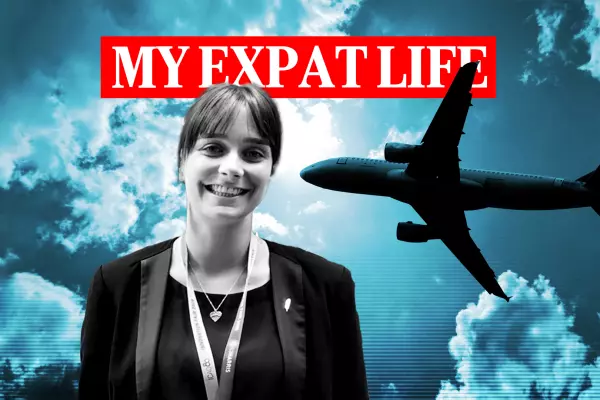If you ask Mike Phillips* about the past few years, he’ll tell you his worst experience wasn’t the global pandemic that cost his IT business half of its contracts and workforce. It wasn’t even having to remortgage his Auckland home.
Instead, it was divorcing his wife of 10 years. And not just the emotional fallout from unpicking a decade’s worth of emotions, memories and belongings. It was also the financial cost to his business.
Phillips, who co-founded a software consulting firm 15 years ago, estimates his divorce cost him more than $100,000 in potential new business, poor servicing of existing clients, and staff turnover.
“My head just wasn’t in the game,” he says. “Not only was I emotionally dealing with the end of a marriage, which wasn’t taken lightly, I also wasn’t there physically a lot of the time because I was called away to meet with lawyers, to dig up paperwork, and work out a settlement. It was detrimental to my staff and workplace culture because I wasn’t around to lead and advise.”
Thanks to the spike in divorces triggered by covid, subsequent lockdowns and an estimated two-year back-log in the judicial system, Phillips’ separation is still dragging on. “It’s been painful, costly, and has disrupted every part of my life.”
It’s a comment Bridgette Jackson hears a lot. The Auckland divorce coach says businesses often unwittingly come along for the ride when a couple divorce.
“There are currently no New Zealand stats on the cost to a business of an owner or employee divorcing. But US figures indicate that employee productivity can drop by as much as 40% during a divorce. That can work out costing the business around US$85-150k.”
And if we believe the Geneva Business News, about 160 hours of work time. “There is data to prove that in the year following divorce, employees lose more than 160 hours of work time, equivalent to being fully absent for four weeks in one calendar year,” reported the online publication.
 Bridgette Jackson, founder of Equal Exes.
Bridgette Jackson, founder of Equal Exes.
Jackson, who started her divorce coaching business, Equal Exes, three years ago, says there are several reasons for this. “Probably the biggest is absenteeism. As anyone who’s been through a divorce knows, a lot of time is needed to organise meetings with lawyers, accountants and other experts. And don’t forget that can also mean sick days and mental-health days, because divorce can play havoc with a person’s health and well-being.”
“Presenteeism” – being at work in body but not mind – can also be a business cost. “Someone can turn up to work every day but their mind is somewhere else and they’re not functioning at full capacity. Employees can become distracted, in turn distract their colleagues, and use work hours to deal with these issues. That can result in time and productivity lost across the workplace.”
Another issue is staff turnover if divorce results in a couple having to move from their current locality. “They might have to move to another town, so travel to work gets harder, or even move cities to be closer to the kids. Or they might want a fresh start in a new place and new job.”
Depending on custody arrangements, single parents may not be able to work overtime, outside of normal work hours or during school holidays, which can be another cost to the business.
Or, as happened to one of Jackson’s clients, the stress of a divorce can cause an employee to seek a less-stressful job, affecting both their career trajectory and their employer.
“This client was in a senior executive role but because of the stress of her divorce found it difficult to stay in her job. So she took a lesser role with fewer hours, which she’s finding easier to manage.”
Expect more of this as our divorce figures climb, Jackson predicts. Statistics NZ figures show that in 2020, 7707 couples were granted a divorce in New Zealand. Factor in a global pandemic, lockdowns and their subsequent toll on relationships and just like that, many more Kiwis will have booked a seat on the divorce roller coaster.
In Australia, one in five couples blamed the pandemic for ruining their relationship, while one in 12 said they were considering separating. A record 49,625 couples across the ditch filed for divorce during 2020/21 – an 8% rise in just 12 months.
It’s a similar story here, says Jackson, who estimates that it can take three years to “come out the other side” of a divorce, “especially with the delays in the legal system caused by lockdowns and an increasing number of couples divorcing. That’s how long it can take to go through the process and begin to heal.”
Jackson knows what she’s talking about: the mother of four’s own divorce took five years and $500,000 in legal fees to settle.
It’s why she set up Equal Exes to provide “a better and cheaper pathway through divorce”.
She now employs five staff – including a family lawyer and mediation specialist – who help clients to navigate the legal, parental, financial and well-being maze of divorce.
That includes providing a road map for how they want their lives to look socially, financially and with regards to childcare arrangements.
“It involves working with clients to firstly see if a divorce is right for them – should they stay or should they go? We also offer mediation services, financial advice to help untangle complex financial arrangements, help in splitting assets, and guidance in establishing child-custody arrangements. It may also include help getting a job after divorce, because some partners, especially women, may not have worked for a while and have no idea of the finances. Some clients don’t even know if they have a mortgage.”
Recently, Jackson has been developing a resource for businesses to help weather the financial storms that employees getting a divorce can cause.
“It’s a portal that corporates can put on their intranet with strategies to help reduce absenteeism, presentism and lost time, productivity and cost.”
Janya Anderson, head of operations at digital marketing agency Pure SEO, understands there can be a cost to a business of employees involved in a divorce but believes “it’s worth it”.
“Supporting and helping employees though a time in their lives when everything else is crumbling around them is what you do for good people,” says Anderson, who works with around 90 staff, split across offices in Auckland, Melbourne and Manila.
 Janya Anderson, head of operations at Pure SEO.
Janya Anderson, head of operations at Pure SEO. In the past few years, two of the company’s senior managers have gone through a divorce, but Anderson admits it’s hard to quantify the cost to the business.
“Yes, there is a degree of absenteeism as staff have to attend meetings with lawyers and accountants during business hours. And there can be a level of distraction, because naturally people have a lot on their minds. But I don’t see that as an inconvenience, I see it as an opportunity to support and help staff so they can bring their whole selves to work. Sometimes we all need to stand on someone else's shoulders and to accept those whose focus needs to be somewhere else for a while.”
Pure SEO, which has its headquarters in Auckland, has an employee base of around 10 to 15 nationalities. “Often they don’t have family or friends in New Zealand so their closest relationship is with their colleagues,” says Anderson. “These staff might need more support from the company.”
She’s at pains to stress that while divorce for some can be a source of shame, sharing what’s going on in our lives can open the door to help. “You don’t have to tell everyone, just a trusted manager or colleague. We want to create a culture of trust where staff can talk to someone if they’re having issues or difficulties.”
It’s not just about being kind. Anderson says offering empathy and support can help with staff retention, and loyalty from those feeling unsettled in their personal lives.
“Sometimes people think a change of job or a fresh start can help. But often work can actually be your safe space, the place that provides stability and where you know what to expect, what to do, and can have wins and success. If your employer has been good to you and created a culture of trust and openness, then you’ll feel valued and loyal to them.”
*Name changed for privacy.













